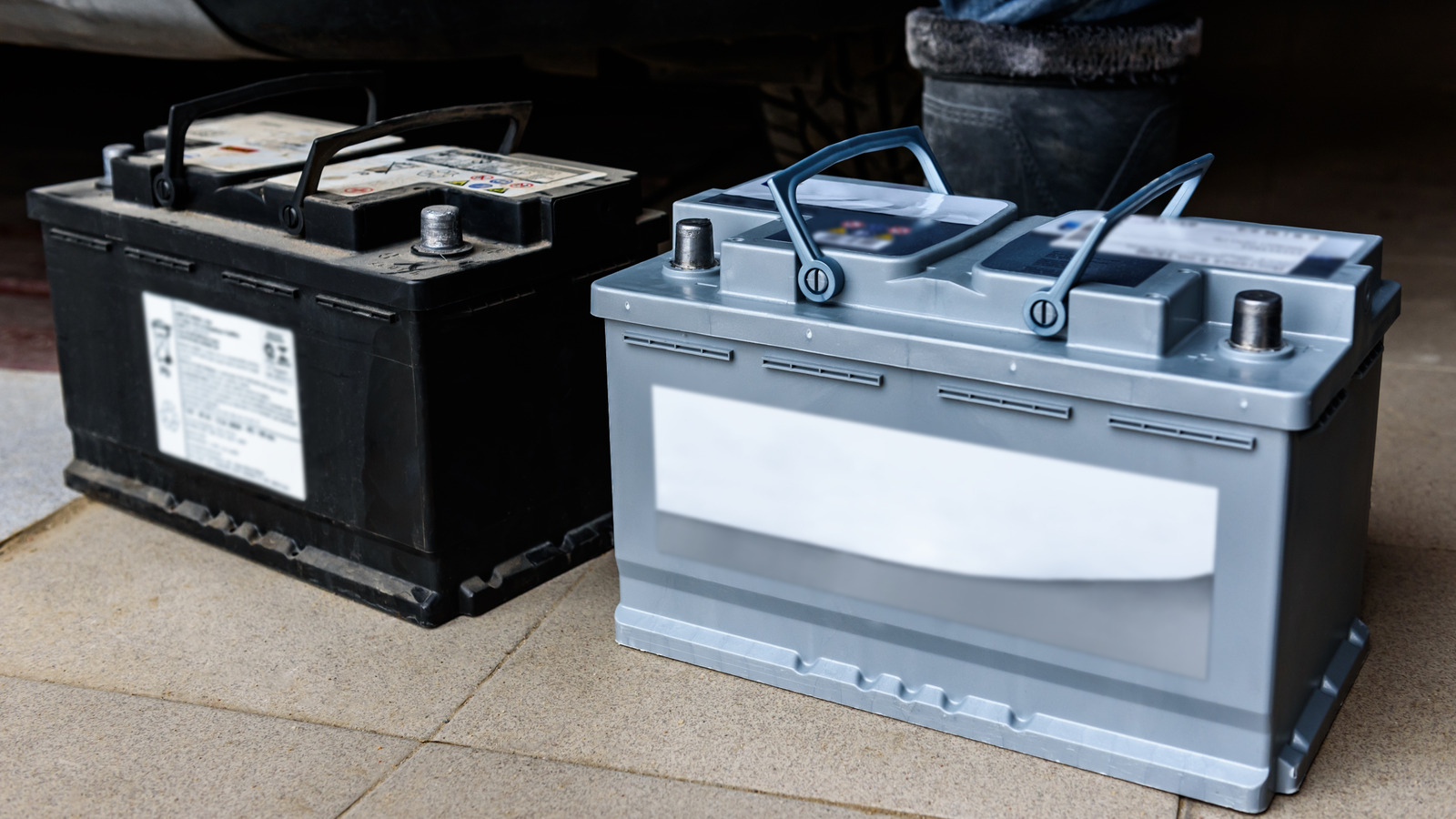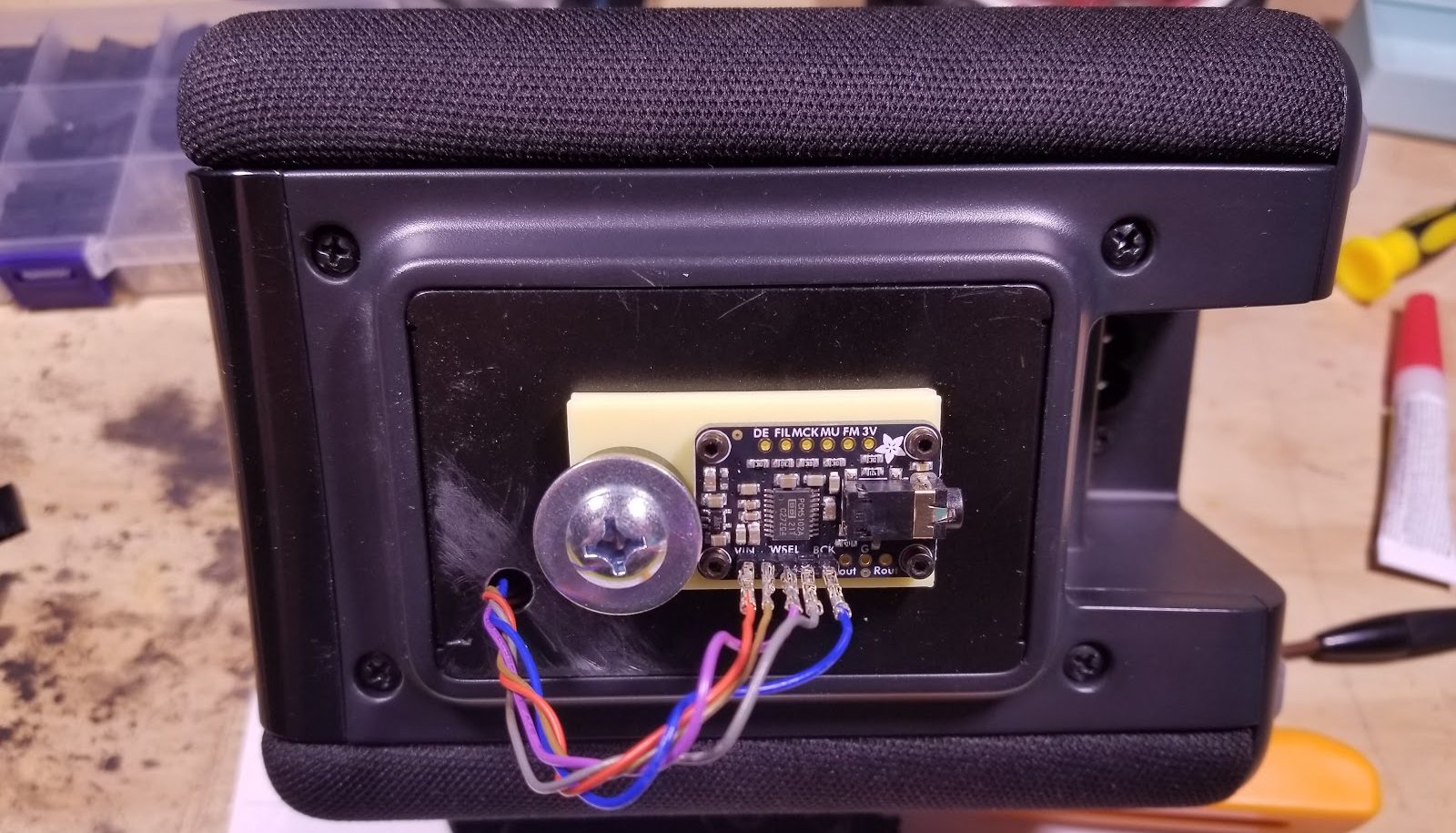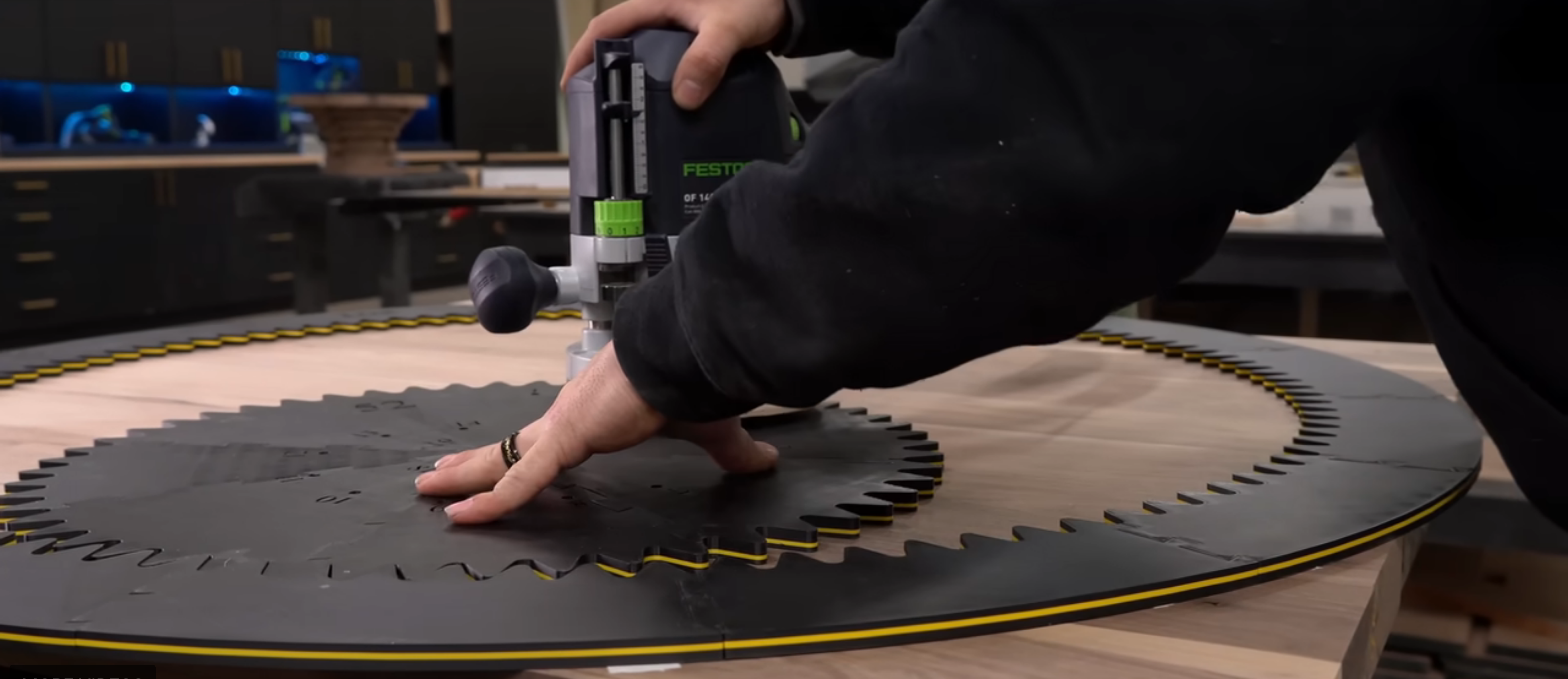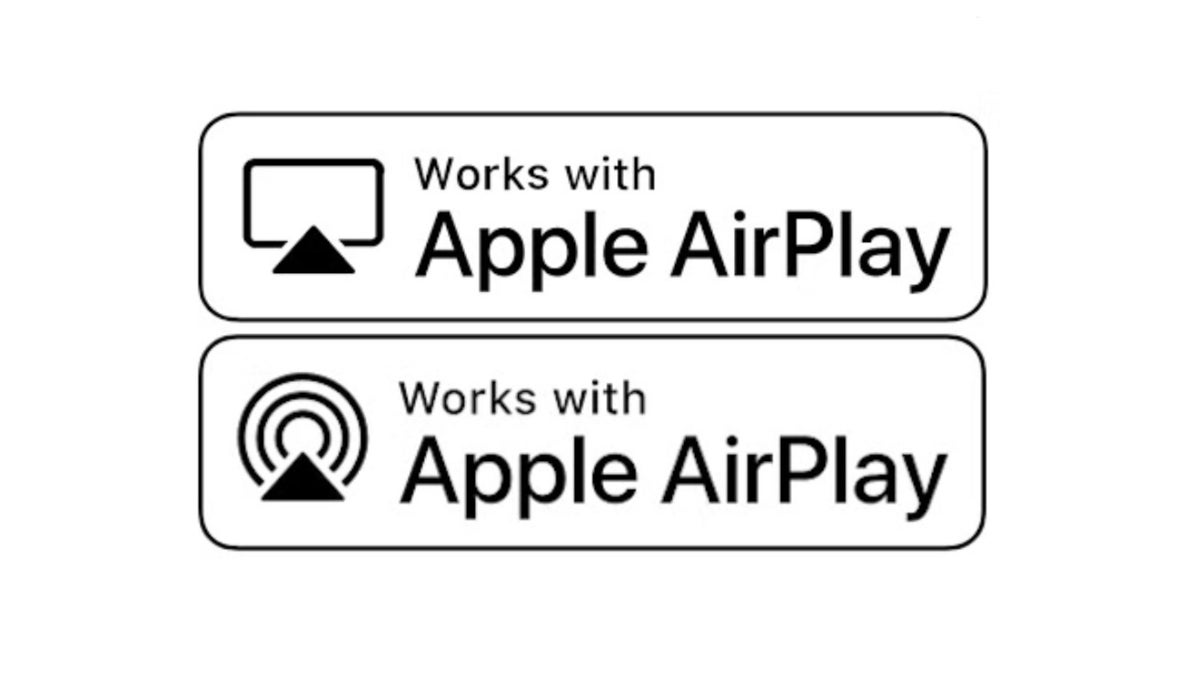Demystifying malloc: Build Your Own Memory Allocator in C
Okay, let's dive into the world of memory management in C on Linux! Introduction: Why Care About Memory Allocation? Imagine your computer's memory (RAM) as a large plot of land. When your C program runs, it needs plots of land (memory) to store its data (variables, structures, etc.). Stack: Think of this as a small, temporary storage shed on your land. It's used for function calls and local variables. It's very fast and managed automatically, but it's limited in size. Heap: This is the main, large area of your land. When you need space that persists beyond a single function call, or when you need a large amount of space, you request it from the heap. This is dynamic memory allocation. Standard C provides functions like malloc(), calloc(), realloc(), and free() to manage this heap land. These functions ask the operating system (OS) for memory and keep track of which parts are used and which are free. In this tutorial, we'll build our own simple version of these functions. Why? Learning: Understanding how they might work under the hood demystifies memory management. Control: Sometimes, for specific applications, a custom allocator can be more efficient (though the standard ones are usually highly optimized). We'll call our functions alt_malloc, alt_free, alt_calloc, and alt_realloc (for "alternative"). We'll primarily use two tools the Linux kernel gives us: sbrk(): Imagine this command lets you push the boundary fence of your heap land further out, giving you a bit more contiguous space. It's relatively simple but less flexible. mmap(): This is like asking the OS for a specific, separate plot of land (possibly quite large) anywhere it can find space. It's more flexible, especially for large requests. Our allocator will use sbrk for smaller requests and mmap for larger ones, similar to how many real allocators work. Let's Get Started! Setup: Creating the Files First, create three files in a directory: alt_mem.h (The Header File - Our library's public interface) alt_mem.c (The Source File - Where our implementation lives) main.c (A Test File - To try out our functions) File 1: alt_mem.h // SPDX-License-Identifier: BSD-3-Clause #pragma once // Ensures this header is included only once per compilation unit #include // Provides size_t type // --- Function Prototypes --- // These declare the functions we will implement in alt_mem.c /* * Allocates 'size' bytes of uninitialized memory. * Returns: A pointer to the allocated memory, or NULL if the request fails. */ void *alt_malloc(size_t size); /* * Frees the memory space pointed to by 'ptr', which must have been returned * by a previous call to alt_malloc(), alt_calloc() or alt_realloc(). * If 'ptr' is NULL, no operation is performed. */ void alt_free(void *ptr); /* * Allocates memory for an array of 'nmemb' elements of 'size' bytes each * and returns a pointer to the allocated memory. The memory is set to zero. * Returns: A pointer to the allocated memory, or NULL if the request fails. */ void *alt_calloc(size_t nmemb, size_t size); /* * Changes the size of the memory block pointed to by 'ptr' to 'size' bytes. * The contents will be unchanged in the range from the start of the region * up to the minimum of the old and new sizes. If the new size is larger, * the added memory will not be initialized. * If 'ptr' is NULL, the call is equivalent to alt_malloc(size). * If 'size' is 0, the call is equivalent to alt_free(ptr). * Returns: A pointer to the newly allocated memory, or NULL if the request fails. */ void *alt_realloc(void *ptr, size_t size); File 2: alt_mem.c (Initial Skeleton) // SPDX-License-Identifier: BSD-3-Clause #include "alt_mem.h" // Include our header #include // For perror #include // For exit, EXIT_FAILURE #include // For sbrk, sysconf, getpagesize #include // For mmap, munmap #include // For memset, memcpy // --- Constants and Macros --- // Alignment: Most CPUs access memory more efficiently if data starts at // addresses that are multiples of 4 or 8. We'll align to 8 bytes. // This macro takes a size 'x' and rounds it UP to the nearest multiple of 8. // Example: ALIGN8(3) -> 8, ALIGN8(8) -> 8, ALIGN8(10) -> 16 #define ALIGN8(x) (((x) + 7) & (~7)) // Threshold for using mmap instead of sbrk. Allocations larger than or // equal to this size will use mmap. 128 KiB is a common threshold. #define MMAP_THRESHOLD (128 * 1024) // --- Error Handling Helper --- // A simple macro to check for errors and exit if something critical fails. #define DIE(assertion, call_description) \ do { \ if (assertion) { \ perror(call_description); \ exit(EXIT_FAILURE); \ }

Okay, let's dive into the world of memory management in C on Linux!
Introduction: Why Care About Memory Allocation?
Imagine your computer's memory (RAM) as a large plot of land. When your C program runs, it needs plots of land (memory) to store its data (variables, structures, etc.).
- Stack: Think of this as a small, temporary storage shed on your land. It's used for function calls and local variables. It's very fast and managed automatically, but it's limited in size.
- Heap: This is the main, large area of your land. When you need space that persists beyond a single function call, or when you need a large amount of space, you request it from the heap. This is dynamic memory allocation.
Standard C provides functions like malloc(), calloc(), realloc(), and free() to manage this heap land. These functions ask the operating system (OS) for memory and keep track of which parts are used and which are free.
In this tutorial, we'll build our own simple version of these functions. Why?
- Learning: Understanding how they might work under the hood demystifies memory management.
- Control: Sometimes, for specific applications, a custom allocator can be more efficient (though the standard ones are usually highly optimized).
We'll call our functions alt_malloc, alt_free, alt_calloc, and alt_realloc (for "alternative"). We'll primarily use two tools the Linux kernel gives us:
-
sbrk(): Imagine this command lets you push the boundary fence of your heap land further out, giving you a bit more contiguous space. It's relatively simple but less flexible. -
mmap(): This is like asking the OS for a specific, separate plot of land (possibly quite large) anywhere it can find space. It's more flexible, especially for large requests.
Our allocator will use sbrk for smaller requests and mmap for larger ones, similar to how many real allocators work.
Let's Get Started!
Setup: Creating the Files
First, create three files in a directory:
-
alt_mem.h(The Header File - Our library's public interface) -
alt_mem.c(The Source File - Where our implementation lives) -
main.c(A Test File - To try out our functions)
File 1: alt_mem.h
// SPDX-License-Identifier: BSD-3-Clause
#pragma once // Ensures this header is included only once per compilation unit
#include File 2: alt_mem.c (Initial Skeleton)
// SPDX-License-Identifier: BSD-3-Clause
#include "alt_mem.h" // Include our header
#include File 3: main.c (Initial Test)
#include Compilation and Testing (Step 0)
Open your Linux terminal, navigate to the directory where you saved the files, and compile:
gcc alt_mem.c main.c -o allocator_test
-
gcc: The C compiler. -
alt_mem.c main.c: The source files to compile. -
-o allocator_test: Specifies the name of the output executable file.
Now run it:
./allocator_test
You should see output indicating that the functions aren't implemented yet. This confirms our basic setup is working!
Step 1: Keeping Track - The Metadata Block
When we allocate memory, we need to store some information about that memory chunk: how big is it? Is it currently in use or free? Where is the next chunk?
We'll store this information in a small structure just before the memory we give to the user.
Think of it like a tag on a piece of luggage. The luggage (user memory) is what the user cares about, but the tag (metadata) tells the baggage handlers (our allocator) where it's going and how big it is.
Let's define this structure and its possible states inside alt_mem.c, near the top:
// Add these includes if they aren't already there
#include -
size: Stores the size of the usable memory region following the metadata. -
status: Tells us if the block is free, allocated viasbrk, or allocated viammap. -
next/prev: These pointers link all our blocks together, forming a doubly linked list. This lets us navigate through our managed memory. -
head: A global pointer that always points to the first block in our list. IfheadisNULL, we haven't allocated anything yet. -
preallocated: A flag we'll use later for an optimization.
Step 2: Basic Allocation (alt_malloc with sbrk)
Let's implement a very simple alt_malloc. For now, it will always ask the OS for new memory using sbrk, ignoring any potentially free blocks we might have later.
Replace the stub alt_malloc in alt_mem.c with this:
// Helper function to request memory from the OS using sbrk
// Returns a pointer to the new block's metadata, or NULL on failure
static block_meta_t *request_space(size_t size, block_meta_t *last_entry) {
// Request enough space for the metadata block PLUS the requested user size
block_meta_t *block = sbrk(sizeof(block_meta_t) + size);
if (block == (void *)-1) { // sbrk returns (void*)-1 on error
perror("sbrk failed");
return NULL; // Indicate failure
}
// Initialize the metadata for this new block
block->size = size;
block->status = STATUS_ALLOC; // Mark as allocated
block->next = NULL; // This is the new last block
block->prev = last_entry; // Link to the previous block
// Update the previous block's 'next' pointer if it exists
if (last_entry) {
last_entry->next = block;
} else {
// If there was no previous block, this is the new head of the list
head = block;
}
return block;
}
// Helper function to find the last block in our linked list
// Needed to link a new sbrk block at the end
static block_meta_t *find_last_entry(void) {
block_meta_t *current = head;
if (!current) {
return NULL; // List is empty
}
// Traverse the list until we find the block whose 'next' is NULL
while (current->next) {
current = current->next;
}
return current;
}
void *alt_malloc(size_t size) {
// 1. Handle invalid size
if (size == 0) {
return NULL;
}
// 2. Align the requested size to 8 bytes
size = ALIGN8(size);
// 3. Find the last block in our list to link the new one after it
block_meta_t *last_entry = find_last_entry();
// 4. Request new space using sbrk
// (For now, we always request new space)
block_meta_t *new_block = request_space(size, last_entry);
if (!new_block) {
return NULL; // sbrk failed
}
// 5. Return the pointer to the user data area
// This is right *after* our metadata block
return (void *)(new_block + 1); // Pointer arithmetic: moves pointer by sizeof(block_meta_t)
}
- We added
find_last_entry()to walk our linked list and find where to append the new block. - We added
request_space()to contain thesbrkcall and metadata initialization. -
alt_mallocnow:- Checks for
size == 0. - Aligns the size.
- Finds the end of the list.
- Calls
request_spaceto get memory from the OS and set up the metadata. - Returns a pointer to the memory after the metadata (
new_block + 1).
- Checks for
Compilation and Testing (Step 2)
Modify main.c to allocate and maybe write some data:
#include Compile and run again:
gcc alt_mem.c main.c -o allocator_test
./allocator_test
You should see successful allocations and the addresses printed! We're managing memory (but leaking it badly since alt_free does nothing).
Step 3: Basic Freeing (alt_free)
Now, let's implement alt_free. The simplest thing it can do is find the metadata block associated with the user pointer and mark it as STATUS_FREE.
Add this function to alt_mem.c:
// Helper function to get the metadata block from a user pointer
// Returns NULL if ptr is invalid (though we don't validate fully here)
static block_meta_t *get_block_ptr(void *ptr) {
if (!ptr) {
return NULL;
}
// The metadata block is located just BEFORE the user pointer
return (block_meta_t *)ptr - 1;
}
void alt_free(void *ptr) {
// 1. Handle NULL pointer
if (ptr == NULL) {
return; // Do nothing if ptr is NULL
}
// 2. Get the pointer to the metadata block
block_meta_t *block = get_block_ptr(ptr);
// 3. Mark the block as free
// (We'll add coalescing and mmap handling later)
if (block->status == STATUS_ALLOC) { // Only free sbrk-allocated blocks this way for now
block->status = STATUS_FREE;
printf("DEBUG: Marked block at %p (user ptr %p) as FREE\n", (void*)block, ptr);
} else if (block->status == STATUS_MAPPED) {
// TODO: Handle freeing mmap-ed blocks later
printf("DEBUG: Freeing MAPPED blocks not implemented yet.\n");
} else if (block->status == STATUS_FREE) {
// Optional: Warn about double free?
printf("DEBUG: Warning - block at %p (user ptr %p) already FREE.\n", (void*)block, ptr);
}
// TODO: Add coalescing (merging free blocks) later
// TODO: Add returning memory to OS (munmap/sbrk reduction) later
}
- We added
get_block_ptr()to easily find the metadata header from the user's data pointer. -
alt_freenow finds the block and sets its status toSTATUS_FREE. It doesn't yet reuse this memory or give it back to the OS.
Compilation and Testing (Step 3)
Uncomment the alt_free calls in main.c:
#include Compile and run:
gcc alt_mem.c main.c -o allocator_test
./allocator_test
You'll see the DEBUG messages showing blocks being marked as FREE. However, notice that allocation 3 likely gets a new, higher memory address. Our allocator isn't smart enough to reuse the space from p1 or p2 yet.
Step 4: Reusing Memory - The Best-Fit Strategy
To reuse freed memory, alt_malloc needs to:
- Scan the linked list of blocks.
- Look for a block with
status == STATUS_FREE. - Check if that free block is large enough (
block->size >= requested_size). - Among all suitable free blocks, choose the best one. "Best-fit" means choosing the smallest free block that is still large enough. This tries to leave larger free blocks available for future large requests.
- If a suitable free block is found, mark it as
STATUS_ALLOCand return it. - If no suitable free block is found, then resort to
sbrkto get new memory.
Let's implement the search function:
// --- Helper Functions (Add this function) ---
// Find the best-fit free block for a given size
// Returns the best block found, or NULL if no suitable block exists
static block_meta_t *find_best_fit(size_t size) {
block_meta_t *current = head;
block_meta_t *best_fit = NULL;
while (current) {
// Check if the block is free and large enough
if (current->status == STATUS_FREE && current->size >= size) {
// Is it the first suitable block found, or smaller than the current best?
if (best_fit == NULL || current->size < best_fit->size) {
best_fit = current;
// Optimization: If we found a perfect fit, we can stop searching
if (best_fit->size == size) {
break;
}
}
}
current = current->next; // Move to the next block
}
return best_fit;
}
Now, modify alt_malloc to use find_best_fit:
void *alt_malloc(size_t size) {
// 1. Handle invalid size
if (size == 0) {
return NULL;
}
// 2. Align the requested size
size = ALIGN8(size);
// 3. Search for a suitable free block (Best-Fit)
block_meta_t *best_block = find_best_fit(size);
if (best_block) {
// --- Block Found! ---
printf("DEBUG: Found suitable free block at %p (size %zu) for request %zu\n",
(void*)best_block, best_block->size, size);
// TODO: Implement block splitting later if best_block->size > size
best_block->status = STATUS_ALLOC; // Mark it as allocated
return (void *)(best_block + 1); // Return user pointer
} else {
// --- No Suitable Block Found ---
printf("DEBUG: No suitable free block found. Requesting new space via sbrk.\n");
// 4. Find the last block to link after
block_meta_t *last_entry = find_last_entry();
// 5. Request new space using sbrk
block_meta_t *new_block = request_space(size, last_entry);
if (!new_block) {
return NULL; // sbrk failed
}
// 6. Return the pointer to the user data area
return (void *)(new_block + 1);
}
}
Compilation and Testing (Step 4)
Use the same main.c from Step 3.
Compile and run:
gcc alt_mem.c main.c -o allocator_test
./allocator_test
Now, look closely at the output for Allocation 3! It should print the "DEBUG: Found suitable free block..." message and the address of p3 should match the address previously used by either p1 or p2 (specifically, it should match p1's address if p1 was 100 bytes and p3 requested 20, as 100 is the "best fit" for 20 among 100 and 50). We are reusing memory!
Step 5: Block Splitting
We have a problem. If we find a 1000-byte free block and only need 50 bytes, our current code marks the entire 1000-byte block as allocated. That wastes 950 bytes!
We need to split the block. If the chosen free block (best_block) is significantly larger than the requested size, we can carve out the size needed, mark that part allocated, and leave the remainder as a new, smaller free block.
When can we split? We need enough leftover space to hold at least a block_meta_t structure plus a minimum usable payload (let's say 8 bytes, our alignment).
Modify the if (best_block) section within alt_malloc:
if (best_block) {
// --- Block Found! ---
printf("DEBUG: Found suitable free block at %p (size %zu) for request %zu\n",
(void*)best_block, best_block->size, size);
// Calculate remaining size after allocation
size_t remaining_size = best_block->size - size;
// Check if we can split the block
// Need enough space for a new metadata block + minimum payload (e.g., 8 bytes)
if (remaining_size >= sizeof(block_meta_t) + ALIGN8(1)) {
printf("DEBUG: Splitting block. Remaining size: %zu\n", remaining_size - sizeof(block_meta_t));
// 1. Create the new free block's metadata *after* the allocated portion
block_meta_t *new_free_block = (block_meta_t *)((char *)(best_block + 1) + size);
new_free_block->size = remaining_size - sizeof(block_meta_t);
new_free_block->status = STATUS_FREE;
// 2. Link the new free block into the list
new_free_block->next = best_block->next;
new_free_block->prev = best_block;
// 3. Update links of surrounding blocks
if (best_block->next) {
best_block->next->prev = new_free_block;
}
best_block->next = new_free_block;
// 4. Update the size of the original (now allocated) block
best_block->size = size;
} else {
// Not enough space to split, allocate the whole block
printf("DEBUG: Not enough space to split block. Allocating entire block (%zu bytes).\n", best_block->size);
}
best_block->status = STATUS_ALLOC; // Mark the (potentially smaller) block as allocated
return (void *)(best_block + 1); // Return user pointer
} else {
// --- No Suitable Block Found ---
// ... (sbrk part remains the same) ...
}
- We calculate
remaining_size. - We check if
remaining_sizeis enough to holdsizeof(block_meta_t)plus a minimum aligned block size (e.g.,ALIGN8(1)which is 8). - If splittable:
- Calculate the address of the new metadata header (
new_free_block). It's locatedsizeof(block_meta_t)bytes before the end of the original user data area, or(char*)(best_block + 1) + size. - Initialize the
new_free_blockmetadata (size, status). - Link
new_free_blockinto the list betweenbest_blockandbest_block->next. - Update
best_block->sizeto the requestedsize.
- Calculate the address of the new metadata header (
- If not splittable, we just use the whole
best_blockas before.
Compilation and Testing (Step 5)
Let's refine main.c to test splitting better:
#include Compile and run:
gcc alt_mem.c main.c -o allocator_test
./allocator_test
Observe the output carefully. You should see:
-
p1andp2allocated at different addresses. -
p1freed. -
p3allocated at the same base address asp1. You should see the "DEBUG: Splitting block" message. -
p4allocated at an address afterp3's data but within the original bounds ofp1's block (ifsizeof(block_meta_t)allows). You should see "DEBUG: Found suitable free block..." for the remainder.
Step 6: Merging Free Blocks (Coalescing)
Now consider this: you allocate block A, then block B. You free A, then you free B. You now have two adjacent free blocks in memory. If a large allocation request comes in that's bigger than A or B alone, but smaller than A + B combined, we can't satisfy it!
We need coalescing: when freeing a block, check if its immediate neighbors (previous or next in memory, not just in the list order) are also free. If they are, merge them into one larger free block.
How do we know if they are physically adjacent?
-
block->nextis adjacent if(char *)block + sizeof(block_meta_t) + block->size == (char *)block->next. -
block->previs adjacent if(char *)block->prev + sizeof(block_meta_t) + block->prev->size == (char *)block.
Let's implement the join_free_blocks function:
// --- Helper Functions (Add this function) ---
// Coalesce adjacent free blocks starting from 'block'
// Merges with next block(s) if free and adjacent.
// Merges with previous block(s) if free and adjacent.
static void join_free_blocks(block_meta_t *block) {
printf("DEBUG: Attempting to coalesce around block %p (size %zu)\n", (void*)block, block->size);
// 1. Coalesce with the NEXT block (if possible)
if (block->next && block->next->status == STATUS_FREE) {
// Check for physical adjacency
if ((char *)block + sizeof(block_meta_t) + block->size == (char *)block->next) {
printf("DEBUG: Coalescing block %p with next block %p\n", (void*)block, (void*)block->next);
// Increase current block size
block->size += sizeof(block_meta_t) + block->next->size;
// Bypass the merged block in the list
block->next = block->next->next;
if (block->next) {
block->next->prev = block;
}
} else {
printf("DEBUG: Next block %p is FREE but not adjacent.\n", (void*)block->next);
}
}
// 2. Coalesce with the PREVIOUS block (if possible)
// Note: If we merged with the next block above, 'block' itself is still the
// correct starting point for checking the previous block.
if (block->prev && block->prev->status == STATUS_FREE) {
// Check for physical adjacency
if ((char *)block->prev + sizeof(block_meta_t) + block->prev->size == (char *)block) {
printf("DEBUG: Coalescing block %p with previous block %p\n", (void*)block, (void*)block->prev);
// Increase previous block's size
block->prev->size += sizeof(block_meta_t) + block->size;
// Bypass the current block ('block') in the list
block->prev->next = block->next;
if (block->next) {
block->next->prev = block->prev;
}
// Important: After merging with previous, the 'block' pointer is now
// invalid in the sense that the 'previous' block is the one we should
// consider as the result of the merge. However, since we're just
// finishing the free operation, we don't need to update the caller's
// 'block' variable. The list structure is now correct.
// block = block->prev; // Conceptually, but not needed here.
} else {
printf("DEBUG: Previous block %p is FREE but not adjacent.\n", (void*)block->prev);
}
}
printf("DEBUG: Coalescing finished.\n");
}
Now, call this function at the end of alt_free (only for sbrk-allocated blocks for now):
void alt_free(void *ptr) {
if (ptr == NULL) {
return;
}
block_meta_t *block = get_block_ptr(ptr);
if (block->status == STATUS_ALLOC) {
block->status = STATUS_FREE;
printf("DEBUG: Marked block at %p (user ptr %p) as FREE\n", (void*)block, ptr);
// *** Call coalesce here ***
join_free_blocks(block);
} else if (block->status == STATUS_MAPPED) {
// TODO: Handle freeing mmap-ed blocks later
printf("DEBUG: Freeing MAPPED blocks not implemented yet.\n");
} else if (block->status == STATUS_FREE) {
printf("DEBUG: Warning - block at %p (user ptr %p) already FREE.\n", (void*)block, ptr);
}
}
Compilation and Testing (Step 6)
Modify main.c to test coalescing:
#include Compile and run:
gcc alt_mem.c main.c -o allocator_test
./allocator_test
Follow the DEBUG messages. You should see:
- Freeing
bdoesn't coalesce. - Freeing
acoalesces withb(forward). - Allocating
dreuses the mergeda+bblock. - Freeing
ccoalesces with the mergeda+bblock (backward). - Allocating
ereuses the fully mergeda+b+cblock.
Step 7: Handling Large Allocations (mmap)
sbrk is simple but can lead to fragmentation and isn't ideal for very large allocations. mmap is better suited for this. We'll use mmap for requests >= MMAP_THRESHOLD.
mmap-allocated blocks are managed separately; they don't participate in sbrk heap expansion or coalescing with sbrk-allocated blocks. They are still part of our linked list for tracking purposes.
First, add a helper function to perform the mmap allocation:
// --- Helper Functions (Add this function) ---
// Map memory using mmap for large allocations
// Returns pointer to user data area, or NULL on failure
static void *map_memory(size_t size, block_meta_t *last_entry) {
// Request size + metadata space.
// MAP_ANONYMOUS: Memory not backed by a file, initialized to zero.
// MAP_PRIVATE: Modifications are private to this process.
block_meta_t *block = mmap(NULL, // Let kernel choose address
sizeof(block_meta_t) + size,
PROT_READ | PROT_WRITE, // Permissions
MAP_PRIVATE | MAP_ANONYMOUS,
-1, // File descriptor (none for anonymous)
0); // Offset (0 for anonymous)
DIE(block == MAP_FAILED, "mmap failed"); // Check for error
// Initialize metadata
block->size = size;
block->status = STATUS_MAPPED; // Mark as mmap-ed
block->next = NULL;
block->prev = last_entry;
// Link into the list
if (last_entry) {
last_entry->next = block;
} else {
head = block; // First block overall
}
printf("DEBUG: Mapped new block at %p (size %zu) for request %zu\n",
(void*)block, size, size);
// Return pointer to user data area
return (void *)(block + 1);
}
Now, modify alt_malloc to check the threshold:
void *alt_malloc(size_t size) {
// 1. Handle invalid size
if (size == 0) {
return NULL;
}
// 2. Align the requested size
size = ALIGN8(size);
// 3. *** Check for large allocation ***
if (size >= MMAP_THRESHOLD) {
printf("DEBUG: Request size %zu >= threshold %d. Using mmap.\n", size, MMAP_THRESHOLD);
block_meta_t *last_entry = find_last_entry(); // Still need last entry to link
return map_memory(size, last_entry);
}
// --- If size < MMAP_THRESHOLD, proceed with sbrk logic ---
// 4. Search for a suitable free block (Best-Fit)
block_meta_t *best_block = find_best_fit(size); // find_best_fit ignores MAPPED blocks
if (best_block) {
// ... (Block splitting logic remains the same) ...
printf("DEBUG: Found suitable free block at %p (size %zu) for request %zu\n",
(void*)best_block, best_block->size, size);
size_t remaining_size = best_block->size - size;
if (remaining_size >= sizeof(block_meta_t) + ALIGN8(1)) {
printf("DEBUG: Splitting block...\n");
// ... (split logic) ...
} else {
printf("DEBUG: Not enough space to split...\n");
}
best_block->status = STATUS_ALLOC;
return (void *)(best_block + 1);
} else {
// --- No Suitable sbrk Block Found ---
printf("DEBUG: No suitable free block found. Requesting new space via sbrk.\n");
block_meta_t *last_entry = find_last_entry();
block_meta_t *new_block = request_space(size, last_entry); // request_space uses sbrk
if (!new_block) return NULL;
return (void *)(new_block + 1);
}
}
Note: Our existing find_best_fit function already correctly ignores STATUS_MAPPED blocks because it explicitly checks for current->status == STATUS_FREE. Our join_free_blocks also correctly ignores STATUS_MAPPED blocks when checking neighbors because it checks block->next->status == STATUS_FREE and block->prev->status == STATUS_FREE.
Step 8: Freeing mmap-ed Memory (munmap)
Freeing mmap-ed memory is different: we use munmap() to return it directly to the OS. We also need to remove its metadata block from our linked list.
Modify alt_free:
void alt_free(void *ptr) {
if (ptr == NULL) {
return;
}
block_meta_t *block = get_block_ptr(ptr);
if (block->status == STATUS_ALLOC) {
// --- Freeing sbrk block ---
block->status = STATUS_FREE;
printf("DEBUG: Marked sbrk block at %p (user ptr %p, size %zu) as FREE\n",
(void*)block, ptr, block->size);
join_free_blocks(block); // Coalesce sbrk blocks
} else if (block->status == STATUS_MAPPED) {
// --- Freeing mmap block ---
printf("DEBUG: Freeing MAPPED block at %p (user ptr %p, size %zu) using munmap\n",
(void*)block, ptr, block->size);
// 1. Unlink the block from the list
if (block->prev) {
block->prev->next = block->next;
} else {
// Block was the head of the list
head = block->next;
}
if (block->next) {
block->next->prev = block->prev;
}
// 2. Release memory back to the OS
// We need to unmap the metadata AND the user data area
size_t total_size = sizeof(block_meta_t) + block->size;
int ret = munmap(block, total_size);
DIE(ret == -1, "munmap failed");
} else if (block->status == STATUS_FREE) {
printf("DEBUG: Warning - block at %p (user ptr %p) already FREE.\n", (void*)block, ptr);
}
}
Compilation and Testing (Steps 7 & 8)
Update main.c to test large allocations:
#include Compile and run:
gcc alt_mem.c main.c -o allocator_test
./allocator_test
Observe the DEBUG output. You should see:
- Small allocations using
sbrk. - The large allocation triggering the
mmapmessage. - Another small allocation using
sbrk. - Freeing the large allocation triggering the
munmapmessage. - Freeing small allocations potentially triggering coalescing.
- The second large allocation using
mmapagain.
Step 9: Implementing alt_calloc
calloc(nmemb, size) is like malloc(nmemb * size) but initializes the memory to zero.
- If we use
mmap(because the total size is large),MAP_ANONYMOUSalready zeroes the memory for us! - If we use
sbrk(by finding a free block or extending the heap), we must manually zero the memory usingmemset.
Let's implement alt_calloc:
void *alt_calloc(size_t nmemb, size_t size) {
// 1. Calculate total size and check for overflow / zero request
size_t total_size = nmemb * size;
if (nmemb == 0 || size == 0 || total_size / nmemb != size) { // Check for overflow
return NULL;
}
// 2. Align the total size
total_size = ALIGN8(total_size);
// 3. Decide between mmap and sbrk based on threshold
void *ptr = NULL;
if (total_size >= MMAP_THRESHOLD) {
printf("DEBUG calloc: Request size %zu >= threshold. Using mmap.\n", total_size);
block_meta_t *last_entry = find_last_entry();
ptr = map_memory(total_size, last_entry);
// mmap anonymous memory is already zeroed by the kernel
if (!ptr) return NULL; // map_memory failed
} else {
printf("DEBUG calloc: Request size %zu < threshold. Using sbrk logic.\n", total_size);
// Use the same logic as alt_malloc for finding/allocating sbrk blocks
block_meta_t *block = find_best_fit(total_size);
if (block) {
// Found a free block
printf("DEBUG calloc: Found suitable free block at %p\n", (void*)block);
// Split if necessary (same logic as malloc)
size_t remaining_size = block->size - total_size;
if (remaining_size >= sizeof(block_meta_t) + ALIGN8(1)) {
printf("DEBUG calloc: Splitting block.\n");
block_meta_t *new_free_block = (block_meta_t *)((char *)(block + 1) + total_size);
new_free_block->size = remaining_size - sizeof(block_meta_t);
new_free_block->status = STATUS_FREE;
new_free_block->next = block->next;
new_free_block->prev = block;
if (block->next) block->next->prev = new_free_block;
block->next = new_free_block;
block->size = total_size;
} else {
printf("DEBUG calloc: Not splitting block.\n");
}
block->status = STATUS_ALLOC;
ptr = (void *)(block + 1);
} else {
// No free block, request new space
printf("DEBUG calloc: No suitable free block. Requesting new space via sbrk.\n");
block_meta_t *last_entry = find_last_entry();
block = request_space(total_size, last_entry);
if (!block) return NULL; // sbrk failed
ptr = (void *)(block + 1);
}
// *** Zero the memory for sbrk allocations ***
if (ptr) {
printf("DEBUG calloc: Zeroing %zu bytes for sbrk allocation at %p\n", total_size, ptr);
memset(ptr, 0, total_size);
}
}
return ptr;
}
Compilation and Testing (Step 9)
Add calloc tests to main.c:
#include Compile and run:
gcc alt_mem.c main.c -o allocator_test
./allocator_test
Check the output. You should see the "DEBUG calloc" messages, the correct use of mmap or sbrk, and the "Memory check: OK" messages confirming the zeroing worked.
Step 10: Implementing alt_realloc
realloc(ptr, new_size) is the most complex. It changes the size of an existing allocation.
Cases for realloc(ptr, new_size):
-
ptr == NULL: Equivalent toalt_malloc(new_size). -
new_size == 0: Equivalent toalt_free(ptr). ReturnNULL. - Block is
STATUS_MAPPED:- If
new_size == old_size, returnptr. - Otherwise, always
alt_malloc(new_size),memcpythe minimum of old and new data,alt_free(ptr), and return the new pointer.mremap()could optimize this, but we'll keep it simple.
- If
- Block is
STATUS_ALLOC(sbrk block): a. Shrinking (new_size < old_size): * If the leftover space (old_size - new_size) is large enough to create a new free block (i.e., >=sizeof(meta) + alignment), split the block similar to howmallocsplits. Create a newSTATUS_FREEblock for the remainder, update the current block's size tonew_size, andjoin_free_blocks()on the new free block. * If not enough space to split, just keep the original block size (internal fragmentation). Some allocators might update the size field anyway, but not splitting is safer here. Returnptr. b. Growing (new_size > old_size): i. Check Next Block: Look atblock->next. If it'sSTATUS_FREEand physically adjacent and the combined size (block->size + sizeof(meta) + block->next->size) is >=new_size, then: * Mergeblock->nextintoblock(update size, unlinkblock->next). * If the newly merged block is now larger thannew_size, potentially split off the excess as a new free block (similar to shrinking). * Returnptr. ii. Check Last Block + Extendsbrk: (Optimization - Harder) Ifblockis the very last block allocated viasbrkon the heap, we can try to extend the heap usingsbrk(new_size - old_size). If successful, just updateblock->sizeand returnptr. This avoids copying. (We'll skip this optimization for simplicity in this tutorial, as tracking the "last sbrk block" adds complexity). iii. Allocate New, Copy, Free: If the above don't work, callalt_malloc(new_size),memcpy(new_ptr, ptr, old_size),alt_free(ptr), and returnnew_ptr.
Let's implement alt_realloc based on these rules (omitting the "last block + sbrk extend" optimization):
#include Compilation and Testing (Step 10)
Add realloc tests to main.c:
#include Compile and run:
gcc alt_mem.c main.c -o allocator_test
./allocator_test
Carefully follow the DEBUG output for the realloc tests. Verify:
- Shrinking happens in-place and splits correctly.
- Growing happens in-place by merging with the following free block when possible.
- Growing uses alloc-copy-free when it can't happen in-place.
-
realloconmmap-ed blocks uses alloc-copy-free.
Conclusion and Final Code
Congratulations! You've built a functional, albeit simple, dynamic memory allocator in C. It handles small and large allocations, reuses freed blocks using a best-fit strategy, splits blocks to reduce waste, coalesces adjacent free blocks to combat fragmentation, and correctly implements malloc, free, calloc, and realloc.
Final Code:
alt_mem.h
// SPDX-License-Identifier: BSD-3-Clause
#pragma once // Ensures this header is included only once per compilation unit
#include alt_mem.c
// SPDX-License-Identifier: BSD-3-Clause
#include "alt_mem.h" // Include our header
#include main.c
#include Further Exploration:
-
Efficiency: This allocator uses a linear scan for
find_best_fit, which is slow ($O(N)$ where N is the number of blocks). Real allocators use more complex data structures (like segregated free lists, trees) to find free blocks faster. -
Thread Safety: This allocator is not thread-safe. If multiple threads called
alt_mallocoralt_freeconcurrently, the linked list could become corrupted. Adding mutexes or other locking mechanisms would be necessary. -
sbrkReduction: Ouralt_freedoesn't shrink the heap usingsbrk(negative_value)if the very last block becomes free. This could be added. - Different Strategies: Explore "first-fit" or "worst-fit" allocation strategies instead of "best-fit".
This tutorial provides a solid foundation for understanding the core concepts behind dynamic memory allocation!







































































































































































![[The AI Show Episode 145]: OpenAI Releases o3 and o4-mini, AI Is Causing “Quiet Layoffs,” Executive Order on Youth AI Education & GPT-4o’s Controversial Update](https://www.marketingaiinstitute.com/hubfs/ep%20145%20cover.png)

































































































































![From Art School Drop-out to Microsoft Engineer with Shashi Lo [Podcast #170]](https://cdn.hashnode.com/res/hashnode/image/upload/v1746203291209/439bf16b-c820-4fe8-b69e-94d80533b2df.png?#)













































(1).jpg?#)


























































































_Inge_Johnsson-Alamy.jpg?width=1280&auto=webp&quality=80&disable=upscale#)

















































































































![Apple Developing AI 'Vibe-Coding' Assistant for Xcode With Anthropic [Report]](https://www.iclarified.com/images/news/97200/97200/97200-640.jpg)
![Apple's New Ads Spotlight Apple Watch for Kids [Video]](https://www.iclarified.com/images/news/97197/97197/97197-640.jpg)






































































![[Weekly funding roundup April 26-May 2] VC inflow continues to remain downcast](https://images.yourstory.com/cs/2/220356402d6d11e9aa979329348d4c3e/WeeklyFundingRoundupNewLogo1-1739546168054.jpg)

























